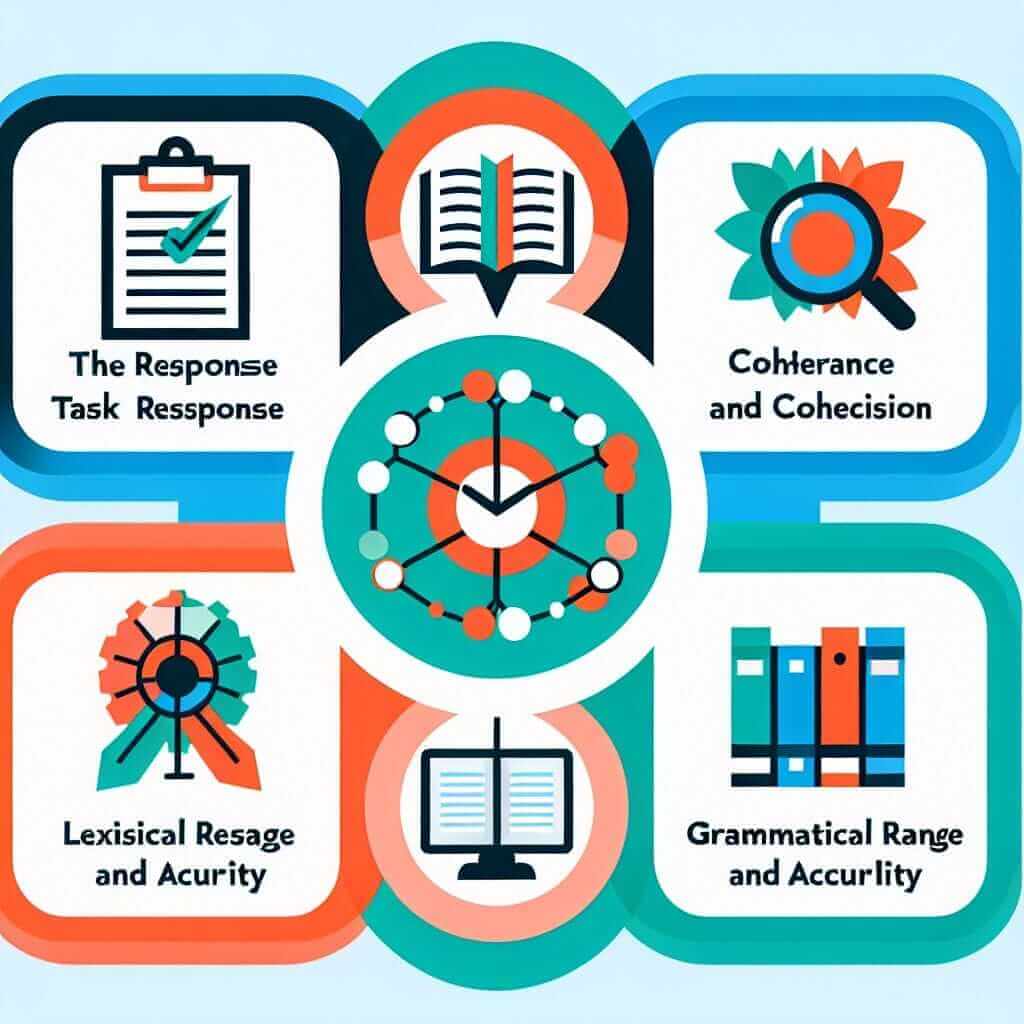As an IELTS instructor with over two decades of experience, I understand the importance of mastering the IELTS Writing Task 2. This section carries significant weight in your overall score, and understanding the marking criteria is crucial for achieving success. This article delves into the intricacies of how IELTS Writing Task 2 is assessed, providing valuable insights to help you excel.
Understanding the IELTS Writing Task 2 Rubric
The IELTS Writing Task 2 band descriptors assess your essay based on four key criteria:
1. Task Response (TR)
This criterion examines how effectively you address the prompt, present your ideas, and develop a well-structured argument. A high score requires:
- Fully addressing all aspects of the task: Ensure you understand the prompt’s nuances and provide a comprehensive response.
- Presenting a clear position: State your stance early on and maintain it throughout the essay.
- Developing your ideas logically: Utilize clear topic sentences, supporting evidence, and logical connectors to guide the reader.
2. Coherence and Cohesion (CC)
This criterion focuses on the overall flow and clarity of your essay. Key aspects include:
- Paragraphing: Organize your essay into well-structured paragraphs, each focusing on a distinct idea.
- Cohesive devices: Employ a variety of linking words and phrases (e.g., however, furthermore, as a result) to connect sentences and paragraphs smoothly.
- Referencing: Use pronouns and synonyms to avoid repetition and improve the readability of your writing.
3. Lexical Resource (LR)
This criterion assesses your vocabulary range and accuracy. Examiners look for:
- Variety: Use a wide range of vocabulary relevant to the topic.
- Precision: Choose words that convey your meaning precisely.
- Collocation: Demonstrate your understanding of how words are used together naturally.
- Idioms (used sparingly): Showing appropriate use of idiomatic language can enhance your score, but only if used correctly and naturally.
4. Grammatical Range and Accuracy (GRA)
This criterion evaluates your ability to use a variety of grammatical structures accurately. This includes:
- Sentence structure: Employ a mix of simple, compound, and complex sentences.
- Tenses: Use a range of tenses accurately and appropriately.
- Punctuation: Demonstrate control over punctuation to enhance the clarity of your writing.

Applying the Criteria: An Example
Let’s consider a sample IELTS Writing Task 2 question:
“Some people believe that the best way to improve public health is by increasing the price of unhealthy food. To what extent do you agree or disagree?”
Here’s how the marking criteria might be applied:
- Task Response: A high-scoring essay would fully address both sides of the argument (increasing prices and alternative solutions) with well-developed supporting points.
- Coherence and Cohesion: The essay would be logically organized, likely with an introduction, paragraphs dedicated to each side of the argument, and a conclusion. Cohesive devices would ensure a smooth flow of ideas.
- Lexical Resource: The writer would use a range of vocabulary related to health, economics, and government policy (e.g., “obesity,” “subsidies,” “legislation”).
- Grammatical Range and Accuracy: The essay would demonstrate control over complex sentence structures, a variety of tenses, and accurate punctuation.
Tips for Success
- Understand the band descriptors: Familiarize yourself with the specific criteria for each band score to understand what examiners expect.
- Practice regularly: Write numerous essays on a variety of topics, focusing on meeting all four assessment criteria.
- Seek feedback: Have your writing evaluated by an experienced IELTS instructor or use online resources to get feedback on your strengths and weaknesses.
- Analyze model essays: Study high-scoring sample essays to see how the marking criteria are applied in practice. Pay attention to the language, structure, and development of ideas.
Conclusion
Mastering the IELTS Writing Task 2 requires a thorough understanding of the marking criteria and consistent effort. By focusing on task response, coherence and cohesion, lexical resource, and grammatical range and accuracy, you can significantly improve your chances of achieving your desired band score. Remember, practice makes perfect!